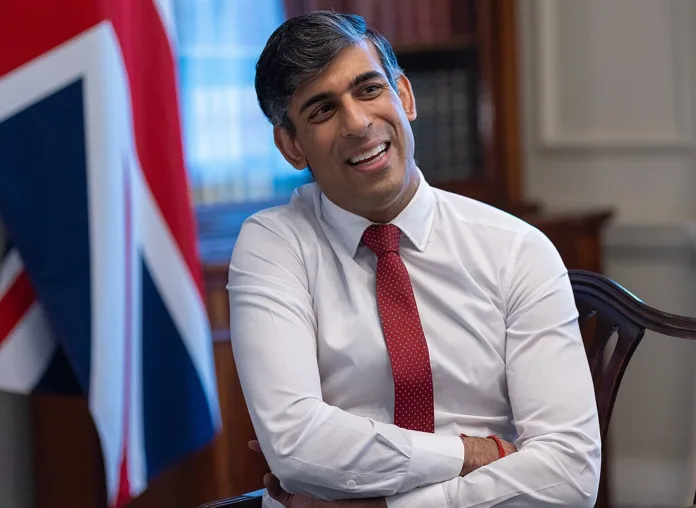In the coming days, the Conservative Party will narrow its leadership race to two, determining the future of opposition to Labour
The race for the Conservative Party leadership is reaching a pivotal moment, with the next 48 hours set to shape the future of the party and Westminster politics for years to come. As the Tories prepare to select their new leader, the outcome will define how effectively they oppose Labour’s government and position themselves for the next general election.
Four candidates remain in the contest: Robert Jenrick, Kemi Badenoch, James Cleverly, and Tom Tugendhat. Each is vying for a spot in the final two, from which the wider Conservative Party membership will make their choice. However, by the end of Tuesday, one will be eliminated, reducing the field to three. By Wednesday, the final pair will be decided.
In Westminster, the atmosphere is intense, with candidates working tirelessly to secure support. MPs have been courted relentlessly, with meetings over breakfast, lunch, coffee, and even late-night drinks. The race is especially tight after the last vote saw Shadow Work and Pensions Secretary Mel Stride eliminated with 16 votes – a significant number in a party of just 121 MPs. Those votes are now up for grabs, and could play a decisive role in determining who moves forward.
Embed from Getty ImagesMomentum appears to be building around James Cleverly. His strong performance at the Conservative Party Conference has earned him the backing of several key figures, including Mel Stride himself, who praised Cleverly’s conference speech as a standout moment. Yet Cleverly faces criticism over his role as Foreign Secretary, particularly regarding the government’s handling of sovereignty over the Chagos Islands. His team counters that Labour, not Cleverly, initiated the controversial decision.
Tom Tugendhat, who brought energy and a combative tone to the conference, including a heated exchange with Robert Jenrick on Newsnight, is widely expected to be the next candidate eliminated. While Tugendhat has garnered praise from prominent figures like Lord Moore, many insiders believe his campaign is losing steam as Cleverly surges ahead.
Robert Jenrick, meanwhile, remains confident. His team is unshaken by the confrontations at the conference and has steadfastly defended his stance on key issues, including advocating withdrawal from the European Convention on Human Rights. Jenrick’s camp believes they will make it to the final two, with their sights set on a head-to-head against James Cleverly. They argue that right-wing candidates have historically won over the Conservative membership, positioning themselves as the favourites if it comes down to Jenrick versus Cleverly.
FINANCIAL TIMES
Mel Stride, the Secretary of State for Work and Pensions, has announced his support for James Cleverly in the upcoming Conservative leadership race. Stride’s backing is seen as a significant endorsement, as he is a key figure within the party and his influence may help Cleverly’s bid gain traction.
Cleverly, the current Foreign Secretary is expected to be one of the leading candidates in the race to replace Prime Minister Rishi Sunak. His experience in foreign affairs and his prominent role in government have positioned him as a strong contender. With Stride’s endorsement, Cleverly’s campaign may attract further support from the party’s moderate wing, particularly among MPs who are looking for a candidate with proven leadership skills and government experience.
Stride’s decision comes amid a period of uncertainty and competition within the Conservative Party, as several high-profile figures are rumoured to be considering a run for leadership. As the race heats up, Cleverly’s appeal will likely be tested against other prominent contenders, and endorsements like Stride’s could play a pivotal role in shaping the contest.
The endorsement reflects the broader ideological divisions within the party, with members weighing their options between continuity with Sunak’s administration and a potential shift in direction. Stride’s backing signals confidence in Cleverly’s ability to lead the party through a challenging political landscape and into the next general election.
THE GUARDIAN
David Mitchell’s satirical take on the Conservative leadership contest highlights the lack of distinction among the candidates vying for attention. He likens the race to a party game called “Margaret Thatcher’s dinner party,” where participants choose a well-known but forgettable name. Mitchell humorously compares this to the Tory hopefuls, such as Robert Jenrick, James Cleverly, and Tom Tugendhat, whose names evoke little excitement or memorability.
In contrast, Kemi Badenoch stands out due to her controversial remarks, including claims about cultural validity and criticism of maternity pay. While her comments stirred reactions—particularly her stance on maternity leave, which even her male opponents disagreed with—Mitchell suggests that her boldness merely masks the overall futility of the leadership race. Badenoch’s campaign, though energetic, sustains an illusion that the contest matters, when, in reality, the stakes seem low, even to her.
Mitchell’s piece humorously critiques the Tory leadership contest as lacking substance, with most candidates appearing bland and interchangeable, except for Badenoch, who draws attention with provocative statements but still cannot escape the broader sense of insignificance surrounding the race.
